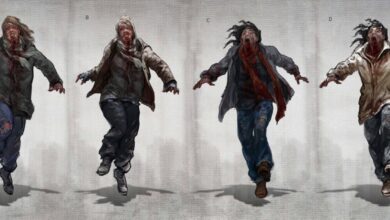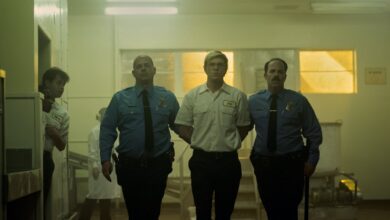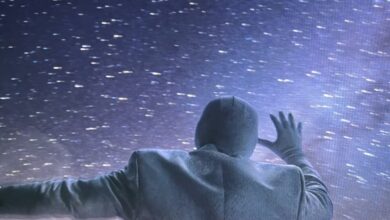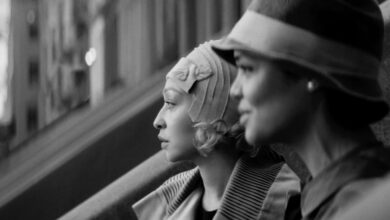1899 Netflix Ending Explained: The Explanation of The (shocking) Ending of Netflix’s New Psychological Thriller
The ending of 1899 Netflix, the new Netflix series from the creators of Dark has left everyone speechless. A shocking and unexpected ending has been able to make this series a great masterpiece and a wonderful creative act. If you too have been incredibly fascinated by this series and want to learn more, or simply understand something more about its incredible ending, here is his explanation.
1899 Netflix Series: Summary Recap
We are in 1899, aboard an ocean liner, the Kerberos, travelling from Europe to America. The ship, on which an inexplicably restless atmosphere hovers, carries a large and varied group of migrants, each of different nationalities and different social classes but all united by the desire to seek a better life. Among these, we immediately get to know Maura Franklin (Emily Beecham), fleeing England and tormented by some dreams about her father, Captain Eyk Larsen (Andreas Pietschmann), the Spanish brothers Ángel (Miguel Bernardeau) and Ramiro (José Pimentão), of a young French couple with evident marital problems (Jonas Bloquet and Mathilde Ollivier), of the mysterious English widow Virginia (Rosalie Craig), of a Danish family (Alexandre Willaume, Maria Erwolter, Lucas Lynggaard Tønnesen, Clara Rosager) fallen from grace and a Cantonese girl, Ling-Yi (Isabella Wei) who, however, is dressed as a Japanese geisha.
The journey, all in all calm, however, is suddenly interrupted by the receipt of anonymous coordinates: having reversed course for what initially appears to be a simple rescue mission, the Kerberos comes across the Prometheus, an ocean liner of the same company that disappeared without a trace four months earlier. . But the oddities don’t end there: not only does there seem to be no passenger on board, dead or alive, but the peremptory order to “sink the ship” arrives from above. And while the captain, aided by Maura, tries to unravel the mystery surrounding Prometheus, other secrets related to the past of its passengers begin to surface on board.
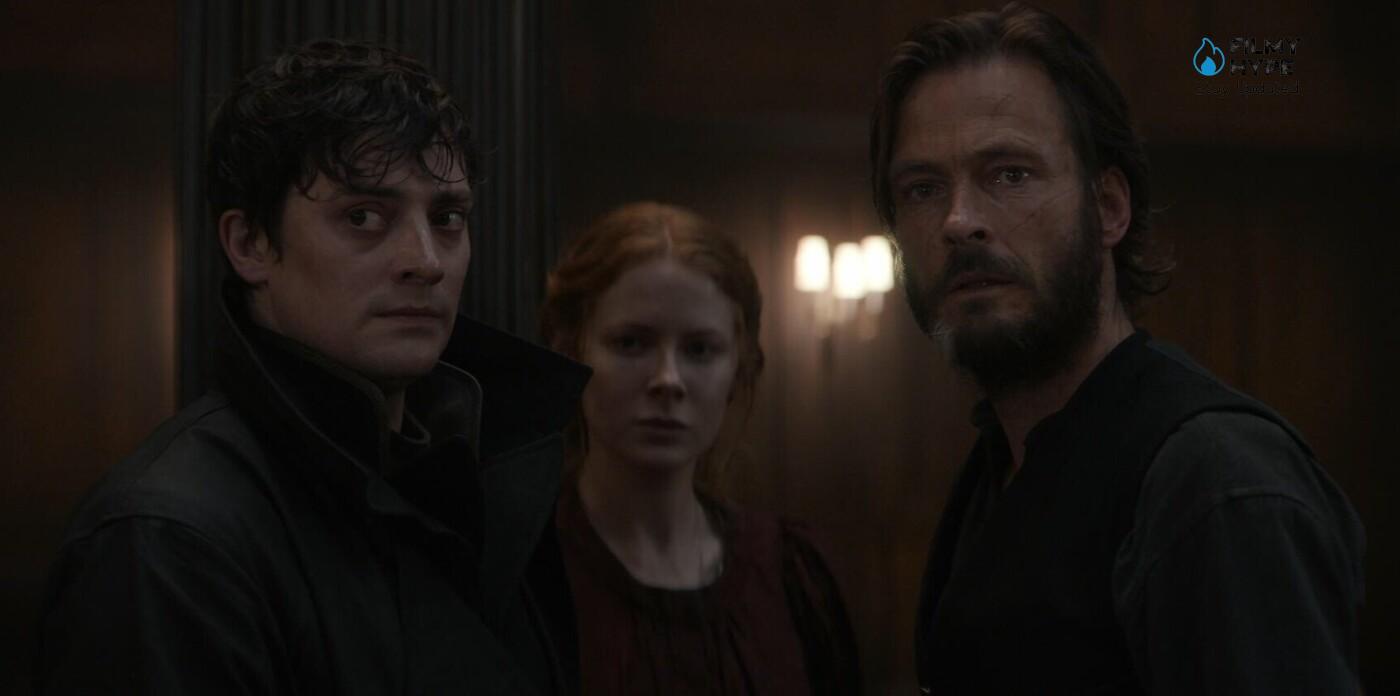
Despite some small tensions between first class and second class and some small problems in the engine area, the journey seems to be going well. The first to stand out among the passengers is Maura Franklin (Emily Beecham), a doctor who stays on her own, lonely but also selfless, haunted by rumours of the past and by a mystery, at the center of which is her life and her family, to have to solve. Of course, things don’t go exactly as they should. Kerberos, after receiving a help message and the coordinates to follow, decides to deviate slightly from the course.
The message comes from the mysterious Prometheus, a ship that disappeared four months earlier with all the crew on board. Going to the rescue of a ship that has been missing for four months now seems to be madness for everyone, but not for Captain Eyk Larsen (Andreas Pietschmann, already present in DARK). If someone wrote that message, it means that not everyone is dead, even if it still seems to be a hypothesis bordering on the impossible. But speaking of the impossible, the message arrived from the Prometheus is only the first of the “impossible” factors that the entire Kerberos crew will have to face in what, very quickly,
1899 Ending Explained: Here What Happened In Last Episode
The last episode of 1899 opens the eyes to reality, not only to the characters in the plot of this crazy Netflix TV series but also to its viewers. All eight episodes in which we were transported inside a steamer in the late nineteenth century together with a group of migrants to the United States is nothing more than an optical illusion, a mental simulation, a program developed by the same protagonist of the series, Maura, who is none other than the Creator himself of the so-called Prometheus project. The woman, in fact, thanks the fact that her husband was able to modify the code of the simulation program and make her “wake up”, returned to reality to discover that she, as well as all her travel companions, are nothing but 2099 at inside a ship while floating in space connected to cables trying to survive, most likely at the end of the world, thanks to the so-called “Prometheus survival project”.
A shocking discovery for the woman, as well as for us viewers leaves you speechless and makes this series even more complex, fascinating and philosophical than it might already seem. Furthermore, in this latest episode, we discover that Maura’s child and her husband, Elliot, were induced by the same mother to forget her death and dragged into an imaginary world where neither he nor his mother had to face this pain anymore. Furthermore, Maura’s father, who seemed to be the big bad from the beginning, will become the key to getting to the truth of the facts and will open everyone’s eyes to what.
In fact, in the last scene, we see the spacecraft’s computer turn on and send a message to the woman from her brother who greets her and welcomes her to reality. After all, what she had experienced so far was just a dream. At this point, seeing that each of the characters in the series is in the spacecraft, we can deduce that these people, not surprisingly coming from different parts of the world, are none other than the only survivors of the disappearance of the Earth and the spacecraft, thus, is nothing else that a sort of Noah’s Ark that contains them, to somehow preserve the species and while looking for other places to start a new humanity, these survivors live simulated lives in their minds.
In every episode of 1899, More clues are revealed that prove that the Cerberus passengers are connected in some way and hide more than one secret. The captain lost his wife and daughter in a fire, and Lucien (Jonas Bloquet) usurped the place of a soldier and abandoned his friend Jérome, who was also on board. Likewise, Ling Yi (Isabella Wei) stole a place on the boat from a friend, Ángel (Miguel Bernardeau) is gay and tries to escape from New York with Ramiro (José Pimentão), who pretends to be a priest, and Maura Franklin searches for his brother Ciaran, who was a passenger on the Prometheus.
Since the boy and Daniel Solace (Aneurin Barnard) board Cerberus, strange things begin to happen: Eyk Larsen has inexplicable flashes from the past, an insect is capable of opening doors and portals, a girl and other passengers appear dead, and the owners of both ships order the Prometheus to be sunk. Convinced that they are trying to hide something, the captain decides to return to Europe and take Prometheus. However, some third-class crew and passengers, tired of not getting an answer, organize a riot and demand that the boy be handed over. Despite Maura’s best efforts, the boy is thrown into the sea and the Cerberus disappears.
Shortly after, the little boy reappears on the ship and shows him how insects work. He also explains that to get an answer, he must talk to the creator. Meanwhile, a sound causes most of the passengers to jump overboard. Tove (Clara Rosager), like some survivors, has terrifying flashbacks from her past. Maura and the captain suspect that what is happening is not reality, so they decide to investigate what seems to be the center of everything. But they are chased by Daniel, who knows what is happening and somehow tries to prevent “everything from repeating itself”.
Who is Really Maura Franklin?
Maura Singleton is the daughter of Henry, the supposed owner of the company that bought the boats that were remodeled. Singleton is dedicated to the study of human behavior and acquired Prometheus and Cerberus to carry out her experiments. Maura’s mother lost her mind, so Henry is obsessed with understanding everything about it and finding a solution. So, who is Daniel and the boy? Daniel is Maura’s husband and the boy named Elliot is his son from her. She doesn’t remember anything because in the simulation she is implanted with false memories. Daniel tries to get his wife to recover her memories before everything restarts once more, that is, all the passengers die.
Maura needs to find the code and Daniel needs to get his device back to stop the completion. Although they use Prometheus to reprogram the simulation, they cannot stop Henry from trapping Elliot and threatening to hurt him if they don’t give him the key that Maura has and opens the small pyramid. When Henry takes Elliot to room 1011, he injects him with something that causes him to wake up inside another memory. Thus, he discovers that his mother created an exclusive simulation for the child to prevent him from dying. Meanwhile, the simulation changes thanks to the code that Daniel manipulates and spreads like a virus.
Who is the Creator?
Near the end of 1899, Henry reveals that it was Maura who created the simulation with her husband Daniel due to an idea she had after reading about Plato’s allegory of the cave. Therefore, it is she who is responsible for everyone being trapped in that loop. After getting the key, Henry places it in the pyramid to escape the simulation, however, it doesn’t work because Daniel changed the code. The real code is found in Maura’s wedding ring, so Emily Beecham’s character has a chance to escape and fix everything.
Before letting her go, Daniel reveals that Henry is not the creator and that he is also trapped in the simulation. Since Maura has been in the simulation, her brother Ciaran has taken over the Prometheus project. The first season of 1899 ends with Maura waking up in a huge spaceship called the Prometheus, where other chambers are also located. Henry’s daughter finds a note with the same phrase that was repeated in the ship’s books: “May your coffee take effect before reality”, while a monitor shows that the project has the mission to survive, 1423 passengers, 550 crew members and the date is October 19, 2099.
What It Seems That 1899 Has Told Us
We start with the last scene, of course. Supposedly (as everything is supposed to be, we’re going to stop saying it, but remember that it’s all supposed to be), we are on October 19, 2099, aboard an interstellar ship called Prometheus in which 1423 passengers travel along with a crew of 550 people. “Hello sis, welcome to reality,” Ciaran tells Maura when she manages to escape her technologically induced dream. Let’s go back in time. From the information we have, and for the last time we insist that everything can be and cannot be, Maura, a doctor specializing in the study of the brain, and her husband, Daniel, designed a device, let’s call it that, that was used to manipulate their brains to create a virtual reality in which their son, Elliot, would not be dead or about to die. And they plunged together into that joint dream that is intuited as a kind of infinite loop in which they are together with their son in a colorful room full of toys.
Cirian, Maura’s brother, would have taken advantage of the fact that she was hooked on that machine to appropriate that technology and take it to the next level. In a world that we intuit apocalyptic, Cirian would have chartered a spaceship to flee from Earth, and the travellers on that ship, to kill time or to remain in a kind of state of hibernation during a trip that we assume to be very long, would also be connected to that machine. Let’s say that there is a kind of common simulation, which is the ship that crosses the Atlantic in 1899, in which each one contributes to their virtual version of the traumas and experiences that marked them in their real life. And these constructions intersect and influence each other, hence the dramas from which each character flees (homophobia, betrayal of a friend, All very Lost.
The feeling is that Cirian was expanding that virtual reality with several layers: Elliot’s game room would be the most superficial, then Maura and Daniel’s modern bedroom, then Maura and Cirian’s father’s office with seventies-looking technology and, Lastly, the boats. It would be like a large computer with different screens in which the one below has references to the one above, like an increasingly complex update devised by computer scientists. And the simulations of experiences are repeated in a loop, the lower you are. Within that system there are tricks and shortcuts, like in video games, to move from one screen to another. Like beetles or beaded gadgets. Daniel has learned to use them over time and thus manages to show Maura the way out.
Alternative Theories of What 1899 Could Tell Us
We focus on the ‘scientific’ and ‘philosophical’ keys, with quotation marks because, supposedly (oh no, this is not supposed), we are talking about a fictional series and not a manifesto on universal-cognitive metaphysics. The core that surrounds the thesis of 1899 is that eternal doubt about whether the reality that we perceive and feel as real is real-real or actually (excuse me) is a product of our neural connections. This already implies that brains exist, which I also tell you is a lot to imply if we put ourselves in this wonderful tone. It would not be surprising if the creators of the series were influenced by that debate that arose some time ago about the real possibility that the entire universe is a computer simulation of a super-evolved alien species. It is not a scratch of our harvest it is really in debate among the great physicists and metaphysicians of today.
Following these coordinates, one could theorize that everything we see in the series could be the product of a single brain. Maura, for example, is the protagonist of something. But including the spaceship at the end. She would have simply created yet another layer of brain projection, only pointing to the future instead of the past. A detail that reinforces this theory: the computer on which he sees the message from her brother Cirian looks like an eighty’s device, certainly not what we imagine the computers of the ships of the future to be like. If we go along the line of the alien god, the possibilities are endless. He could be creating whatever he wants for whatever he wants, with completely random space-time coordinates.
To open that melon is to open the entire melon grove. In short, any alternative theory will always have the same bases: choose which moments, which words or which situations are a reality and separate them from what is a dream construction. There will be those who see many points of reality and come closer to the first explanation, the official one, and there will be those who see very little reality, to the point that nothing is real. Virtually everything fits into that arc, so what this Netflix series proposes is a radical open bar for lovers of crazy theories.
What We Suspect 1899 Counts in The Bottom, Bottom, Bottom
From here we move through a terrain more of emotional intuition than cerebral, so do not take anything as dogma. Supposedly, I think we’re going to get it right. Let Baran bo Odar and Jantje Friese speak if they read it. Or Darío Madrona, who is the representative of Spanish talent in the series along with Miguel Bernardeu. And if all the plots we have seen in 1899 are more or less distorted reflections of the same tormented mind? Whose? The answer could be in memory of Maura: according to her, her father built a psychiatric hospital to study and fix her mother’s mind, because she was losing her mind and even forgot her children; in fact, he blamed Maura and Ciaran for his wife’s delusion.
Here comes our movie: what if all we’re seeing is Maura’s mother’s paranoia? We are going to add to her biography some of the conflicts that we have seen in the series, and we warn that not literally. On the one hand, Maura would be inhabiting the mind of her mother. “We are born to search or to avoid, you are one of those who search and searching only causes suffering,” her father tells her. Oh, and remember that Maura has her mother’s last name on the Prometheus passenger list.
Let’s say Maura’s mother had a stormy family relationship, perhaps her father abandoned her and her sisters (the story of the captain and the house fire). Perhaps her mother, who was religious herself (Tove’s story and also the Japanese aspect) forced her to marry a man even though her sexual drive might have gone the other way (Ángel and Ramiro’s story) and she got pregnant despite her that marriage was a betrayal of everything (the story of Lucien, Clemence and Jerome). That’s why she rejected her children. Although there was a bond of love (Elliot’s story), so much abuse of her will broke her.
Set this in a family of psychiatrists, I would say in the 1980s or so. Maura, a privileged student of her father, manages to connect to her mother’s brain in that tireless search to understand what is wrong with her. Her brother, in line with her father, wants to avoid that conflict. And in those, they continue. If we have supposedly hit the nail on the head (this is already an ultra-mega assumption), what 1899 is telling, deep down, deep down, is a story of justice and memory. It is the story of a daughter who immerses herself in her mother’s pain to discover her truth, understand her, forgive her and embrace her. The hug is very season 3, but here we leave it. As we got it right, we deserve to be invited on a cruise by Baran and Jantje. Go, pay Netflix.



